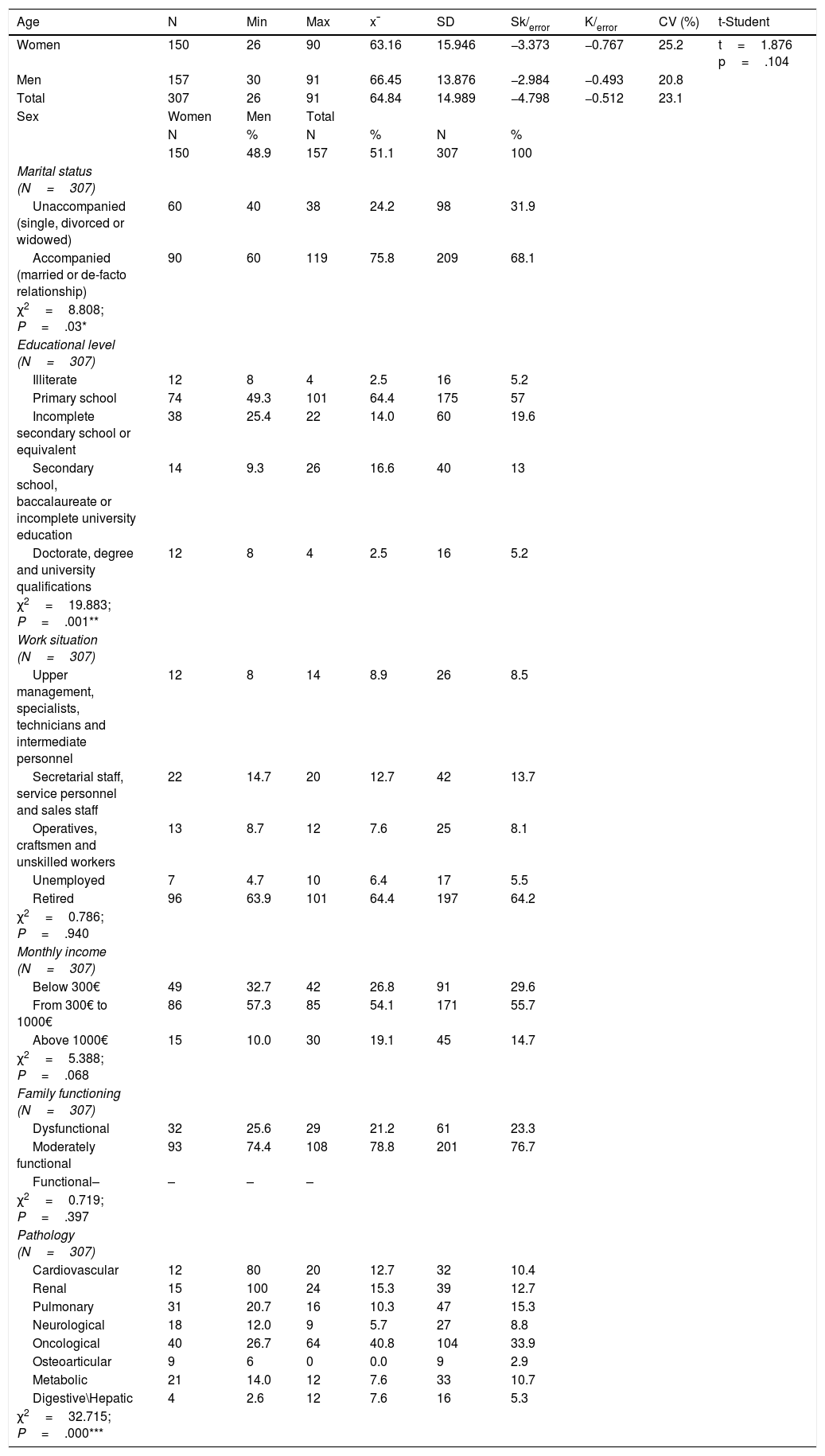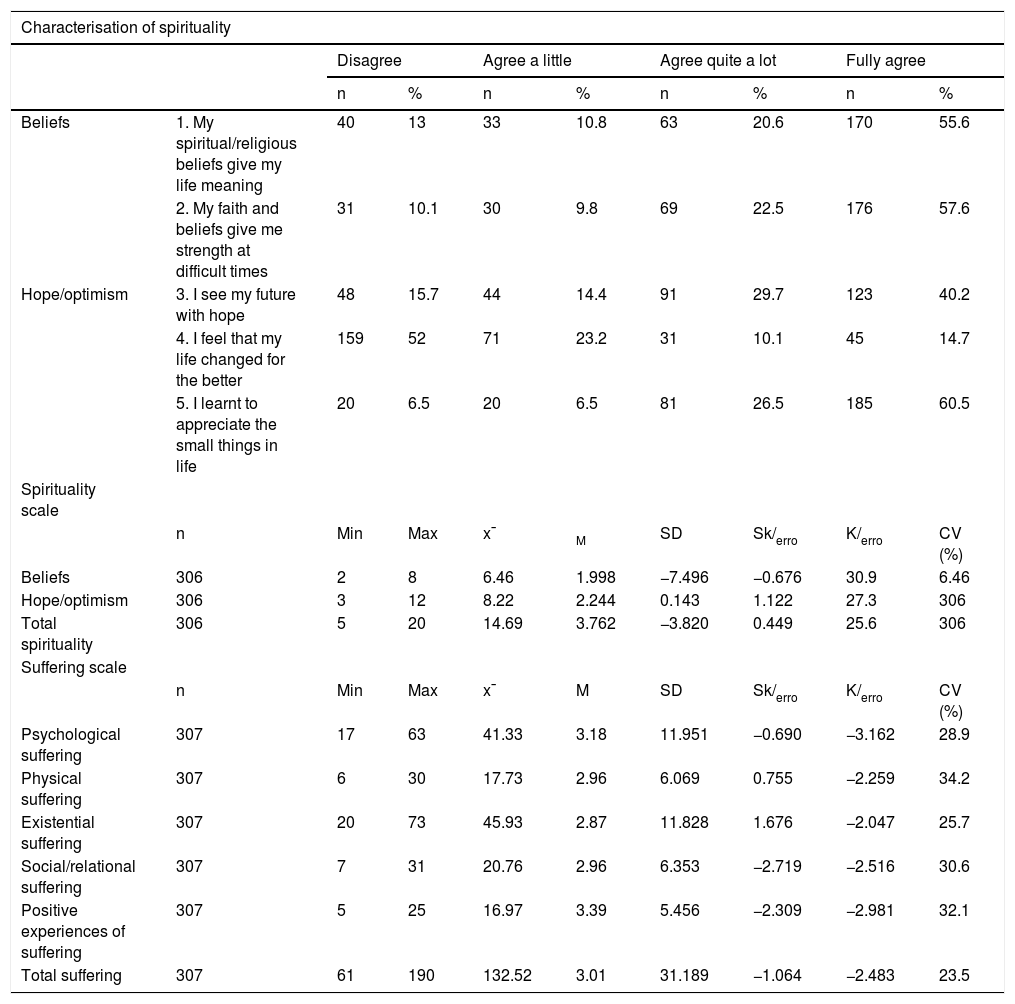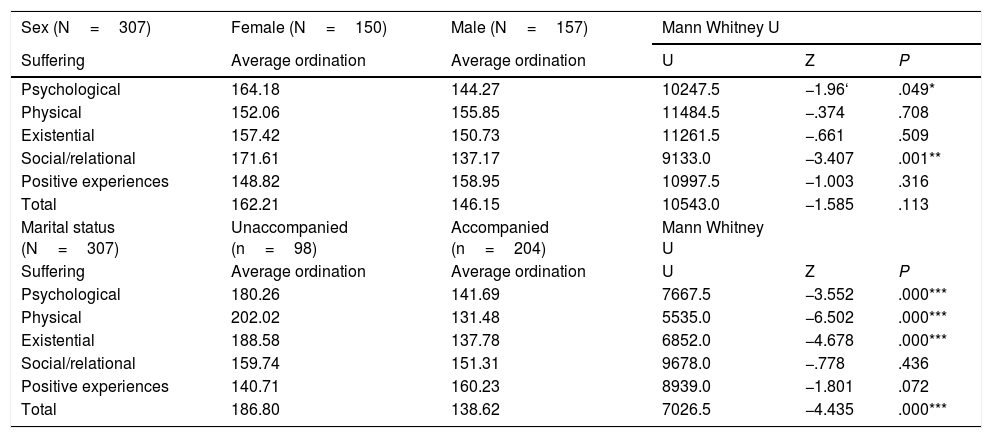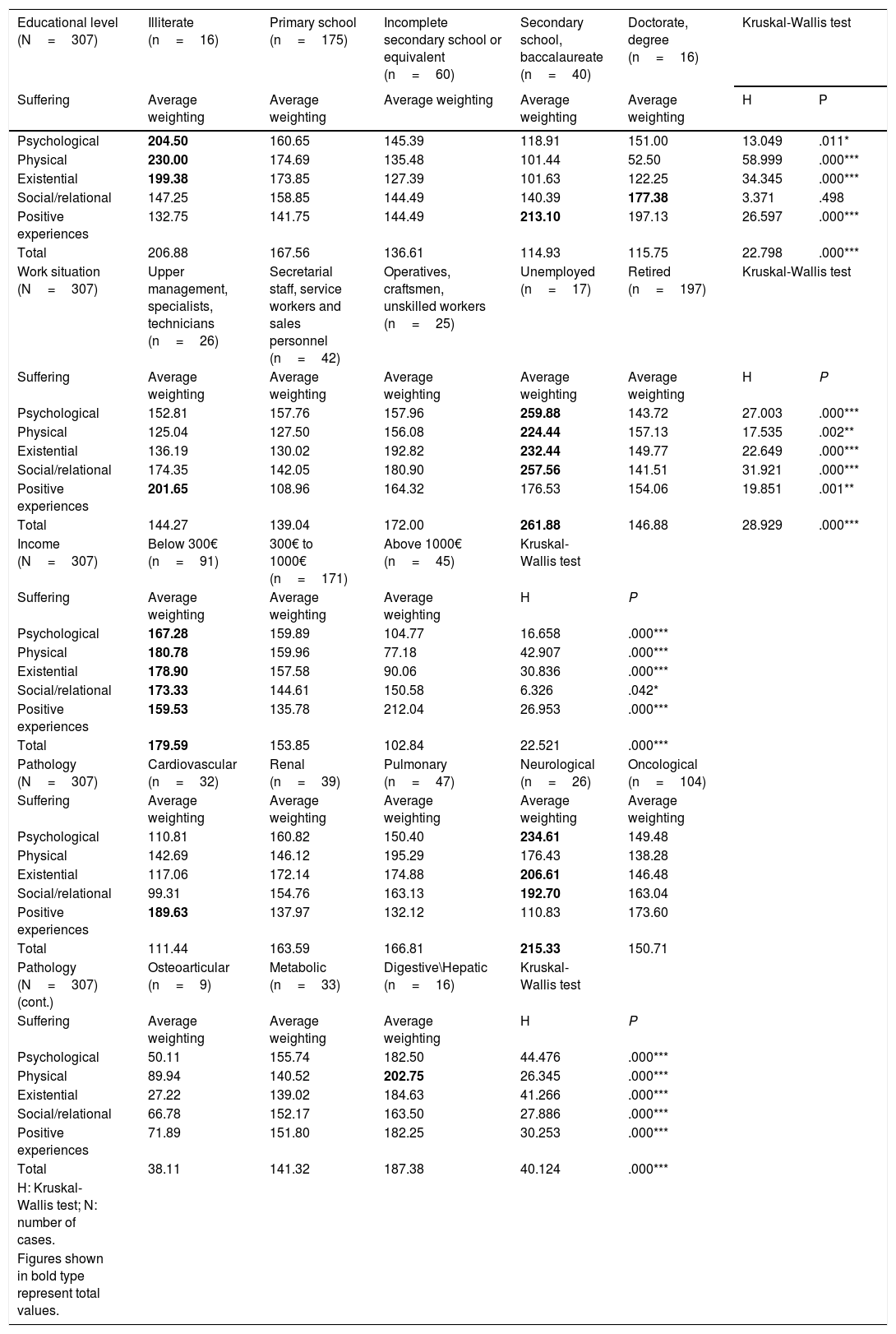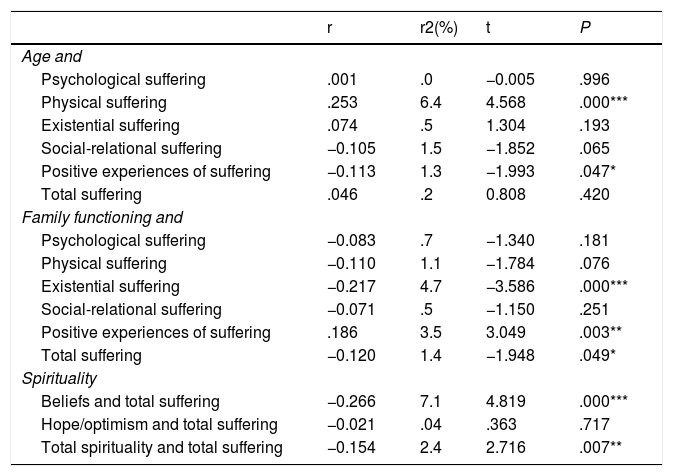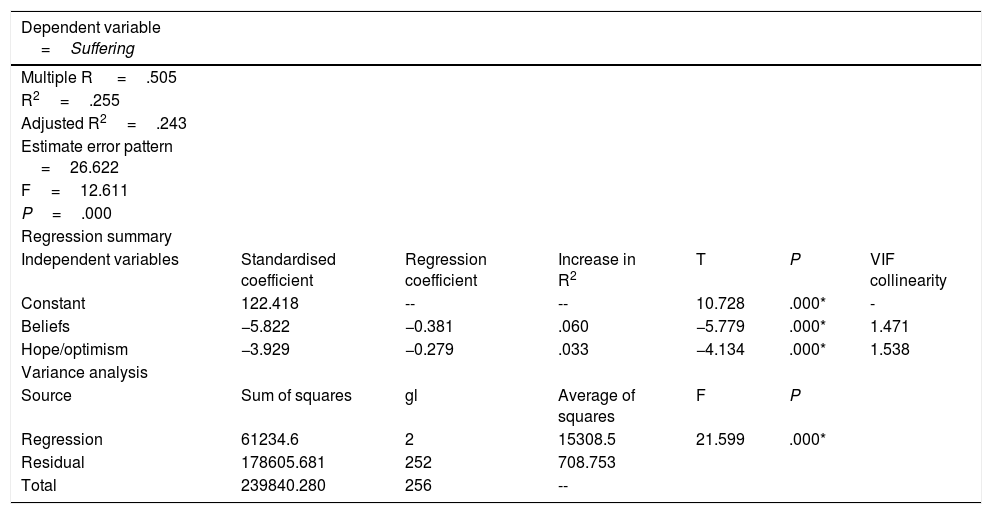To analyse the factors related to suffering in chronic patients within the hospital context.
MethodDescriptive-correlational and cross-sectional quantitative study. Conducted in a hospital in central Portugal, between January and June 2013. A convenience sample of 307 chronic patients was selected. The variables collected through the questionnaire were: age, sex, marital status, employment status, monthly income, perception of family functioning (Smilkinstein), clinical pathology, spirituality (Pinto and Pais-Ribeiro) and degree of suffering (McIntyre and Gameiro). The project was approved by the hospital's ethics committee. The participants signed an informed consent form.
ResultsThe global suffering of chronic patients studied at the hospital level is moderate (M=3.01), on a scale of 1 to 5, with the psychological dimension being the most affected (M=3.18). Elderly patients suffer more physically and have more positive experiences. Women present greater socio-relational and psychological suffering. On the other hand, people who live alone, with a monthly income of less than 300 euros, with a low level of education, with the perception of belonging to a dysfunctional family and with neurological pathology, suffer the most. Multiple linear regression showed that spirituality is significantly inversely correlated with suffering. Beliefs are responsible for 6.0% of the explained variance of suffering and hope / optimism for 3.3%.
ConclusionsPeople with chronic hospitalized diseases experience multidimensional suffering, with variable intensity and that is correlated with several factors. These variables must be considered for correct planning of health care for this population adapted to their specific needs.
Analizar los factores relacionados con el sufrimiento en pacientes crónicos dentro del contexto hospitalario.
MétodoEstudio cuantitativo de tipo descriptivo-correlacional y transversal. Realizado en un hospital en el centro de Portugal, entre enero y junio de 2013. Se seleccionó una muestra por conveniencia de 307 pacientes crónicos. Las variables recogidas mediante cuestionario fueron: edad, sexo, estado civil, situación laboral, ingreso mensual, percepción de funcionamiento familiar (Smilkinstein), patología clínica, espiritualidad (Pinto y Pais-Ribeiro) y grado de sufrimiento (McIntyre y Gameiro). El proyecto fue aprobado por el comité de ética del hospital. Los participantes firmaron un consentimiento informado.
ResultadosEl sufrimiento global de los pacientes crónicos estudiados a nivel hospitalario es moderado (M=3,01), en una escala de 1 a 5, siendo la dimensión psicológica la más afectada (M=3,18). Los pacientes ancianos sufren más físicamente y presentan más experiencias positivas. Las mujeres presentan mayor sufrimiento socio-relacional y psicológico. Por otra parte, las personas que viven solas, con un ingreso mensual inferior a 300 euros, con un nivel de escolaridad baja, con la percepción de perteneciente a una familia disfuncional y con patología de tipo neurológico, son las que más sufren. La regresión lineal múltiple demostró que la espiritualidad se correlaciona significativamente de manera inversa con el sufrimiento. Las creencias son responsables por el 6% de la varianza explicada del sufrimiento y la esperanza/optimismo de un 3,3%.
ConclusionesLas personas con enfermedades crónicas hospitalizadas experimentan un sufrimiento multidimensional, con intensidad variable y que se correlaciona con varios factores. Estas variables deben considerarse para una adecuada planificación de la atención sanitaria a esta población adaptada a sus necesidades específicas.
Artículo
Comprando el artículo el PDF del mismo podrá ser descargado
Precio 19,34 €
Comprar ahora






